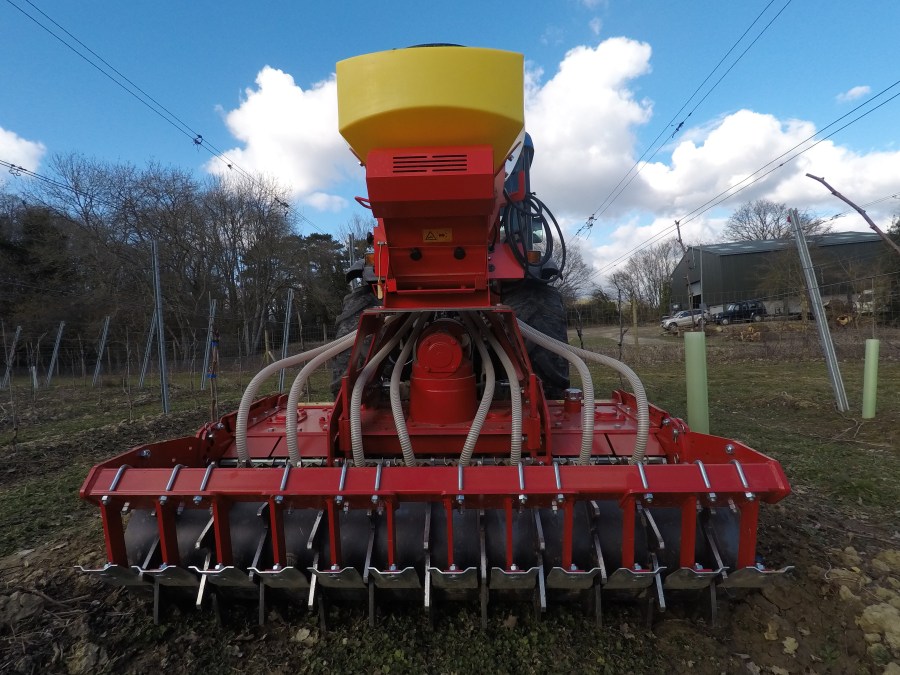As spring approaches and your vines are happily resting, we turn our thoughts to the year ahead and how best to improve on the season before.
The multi-faceted web that is vineyard management can often be overwhelming, especially as there is no recipe to create the perfect crop. Every terroir is unique and requires a different approach to each of the elements that influence your vines productivity. Excluding the climate, your soil has arguably the most important influence on the prosperity of your vines.
Over the last few decades, soil management practices have predominantly consisted of manipulating only the physical and chemical aspects. A lesser understood area is the soils living aspect, known as “the soil food web” which consists of everything from mammals to bacteria. Recent developments in technology have allowed researchers to study the soil food web much closer, unlocking the secrets of what happens beneath us. Did you know that there are more living beings per handful of soil than there are people on Earth! Each organism has a role to play.
So there are three symbiotic aspects of soil management; physical, chemical AND biological which all need to be in balance. The key to a healthy soil is biological diversity and the best way to achieve that in your vineyard is, amongst other things, by planting a cover cop.
A diverse cover crop planted along the alleyways can have a vast array of benefits;
Above the surface:
- Hosting beneficial insects
- Acting as pollinators
- Essential source of organic matter
- Preventing erosion
- Aesthetic value
Below the surface:
- Improve soil structure
- Improve drainage
- Aid water retention
- Increase nutrient cycling
- Improve soil aeration
- Promote Mycorrhizal fungi
- Increase biological activity
Tiny organisms (fungi, bacteria etc.) in the soil convert decaying plant tissue into the healthiest source of food for your vines. Much like with humans, a healthy, natural and diverse diet of unprocessed foods will produce a healthier plant with a stronger immune system than one which is spoon fed chemical supplements.
Leaving a soil bare for too long means that most of the living organisms will eventually run out of organic matter to eat, the fungi dies off and anaerobic bacteria takes over. Weeds thrive in such an environment whilst grapevines prefer a soil with a fungal dominance, a high Carbon: Nitrogen ratio and good aeration. Cover crops are a great source of Carbon and organic matter and some deep rooting varieties help water to filter down to the water table, allowing more space for air. This also decreases evaporation thereby reducing humidity in the microclimate, decreasing disease pressure.
“Select a mixture of plants to suit your specific requirements, diversity is key to covering all aspects.” says specialist Paul Totterdell. To improve structure in heavy clay, for example, you may want to sow White Mustard, Black Oats or Daikon Radish. Purple Vetch and various Clover species have strong nutrient capturing and cycling capabilities which is great on a sandy soil, whilst Phacelia and Forage Rye are great at weed suppression for example.
“It’s a multi purpose tool that’s relatively cheap,” says Matt Strugnell at Ridgeview Wine Estate. “…our Phacelia and Buckwheat mix has helped increase the hover fly populations and decreased sightings of Light Brown Apple Moth in the vineyard.”
Our natural ripening season is relatively short here in the UK and we need to do everything in our power to access our terroir’s full potential. A healthy diverse cover crop will help to unlock a broader spectrum of nutrients and make them available to your plants. A sturdy ground cover will also enable us to get on the land with heavy tractors in less than ideal conditions.
Depending on your goals and chosen varieties, you’ll want to sow your cover crop in either spring or autumn into well prepared soil using a combo power harrow-seed drill. As it’s an operation that doesn’t need doing too frequently, it can be more cost effective to hire in a seed drill from your local contractors. Speak to your agronomist and a local seed supplier to help you choose the right mixture for your situation and let nature do the ‘groundwork’.




